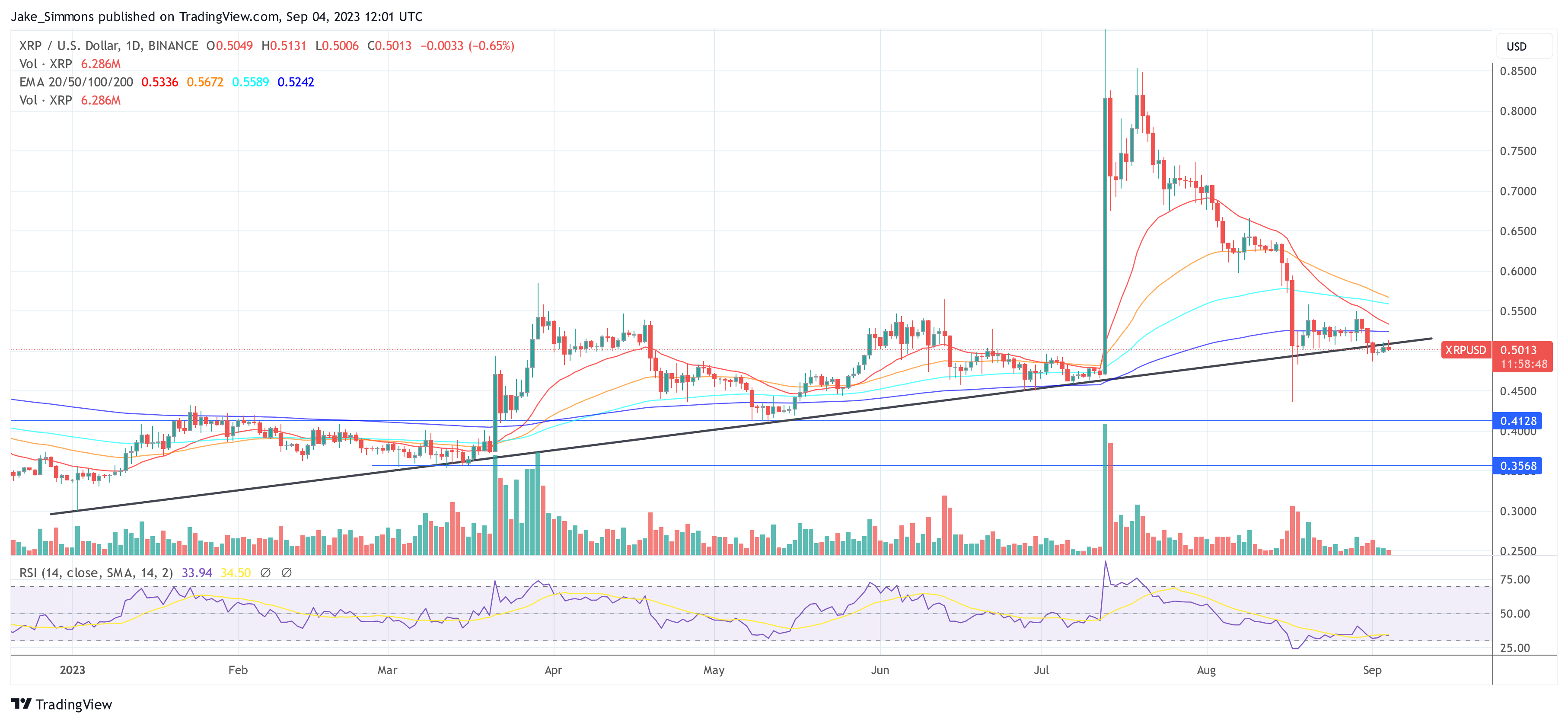Shift From XRP As Reserve Currency To Stablecoins?
Ripple’s strategic direction with the XRP token has historically always been a subject of intense scrutiny and discussion. Recent developments suggest a potential pivot in Ripple’s long-term vision for XRP.
Historically, the company’s ambition for XRP was grand. Statements from six years ago, recently unearthed by the XRP community, reveal Ripple’s aspiration to position XRP as a world reserve currency. In both an unearthed blog post by the fintech and a speech from CEO Brad Garlinghouse, the company laid out its vision for XRP.
$XRP 🔀 | 🌎 RESERVE CURRENCY
We didn’t make this up. Since the beginning @Ripple has stated $XRP is set to become the World’s Reserve Currency.
🏦 — XRP — 🏦
Brad Garlinghouse confirms it 👇🏻 pic.twitter.com/5CbV2i26G0
— EDO FARINA 🅧 XRP (@edward_farina) September 2, 2023
Has Ripple Shifted Its Focus?
However, this narrative seems to be undergoing a transformation. Prominent XRP influencer, Crypto Eri, weighed in on the matter, stating, “Ripple had already sidestepped the narrative of XRP becoming a reserve currency. They haven’t broached that topic in recent years.” She further referred to recent comments by CTO David Schwartz who stated that the fintech is talking to banks and large financial institutions to bring stable coins to their yet to be released proprietary DEX integrated in On-Demand Liquidity (ODL).
Thus, the focus appears to be shifting towards the integration of stablecoins on the XRP Ledger (XRPL) and the potential utilization of decentralized exchanges (DEXs) in Ripple’s ODL service. Schwartz also provided insights into the company’s current trajectory. “Decentralized exchanges are not presently integrated into ODL,” Schwartz clarified. However, he emphasized the ongoing explorations to incorporate DEX services, which would “enable trading against automated market makers (AMMs).”
Schwartz further elaborated on the capabilities of Prisma, an API related to ODL. “Prisma can leverage the liquidity of multiple exchanges, including DEXs,” he explained. “It can dissect substantial transactions into more manageable portions to optimize the utilization of liquidity.”
Yet, a significant hurdle remains. Schwartz pointed out the necessity of stablecoins in major currencies, such as the US dollar or Euro, for the practical implementation of these plans. “We had neared an opportunity to integrate stablecoin functionality onto XRPL,” Schwartz revealed. However, he lamented that the SEC lawsuit against Ripple two and a half years ago “torpedoed that deal.”
Despite these challenges, Ripple’s commitment to innovation remains undeterred. Schwartz confirmed that the company is actively “engaging top financial institutions about launching stablecoins to make the DEX integration more practical.”
As the crypto landscape continues to evolve, Ripple’s strategic shifts underscore the dynamic nature of the industry and the need for adaptability. Whether XRP’s role as a reserve currency is truly in the rearview, or if it’s merely taking a backseat to more immediate technological advancements, remains to be seen.
At press time, XRP traded at $0.5013.

Featured image from Zipmex, chart from TradingView.com
